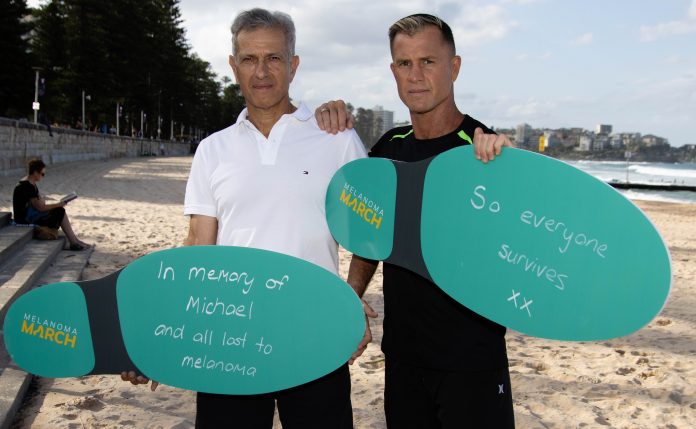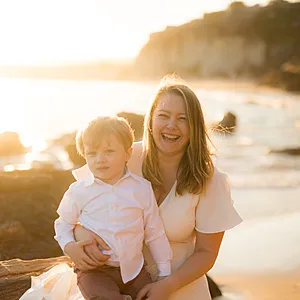James Economides, a Manly-based father and real estate agent, loves a paddle on the water with his friends. Usually, they catch up for a drink or coffee after for a chat. “I’ve asked them, ‘have you taken your teenage kids to get their skin checked yet’”?
The response has often been weak, he said.
“They say ‘no, but they’re only young”, or the kind of ‘sure I’ll get right onto it’ which is as much a no as it is a yes.” And that, James describes, is when his demeanour changes. “I’ve said to them, ‘do you understand, do you realise I lost my son ten years ago because of a melanoma? He was only 20. Go and get them checked’.”
No one understands the devastating impact of an unrecognised melanoma as well as James, his wife and two surviving children. His son Michael died after a tiny melanoma crept from his neck to his lymph nodes and eventually into his brain, blood and bones. Despite a fierce battle and several surgeries, he succumbed on 14 November of 2008.
It was a few short years after that when James launched a Melanoma March, raising funds, awareness and bringing survivors and families of loved ones affected by the disease together on long walks to draw the nation’s attention to one of Australia’s biggest killers.
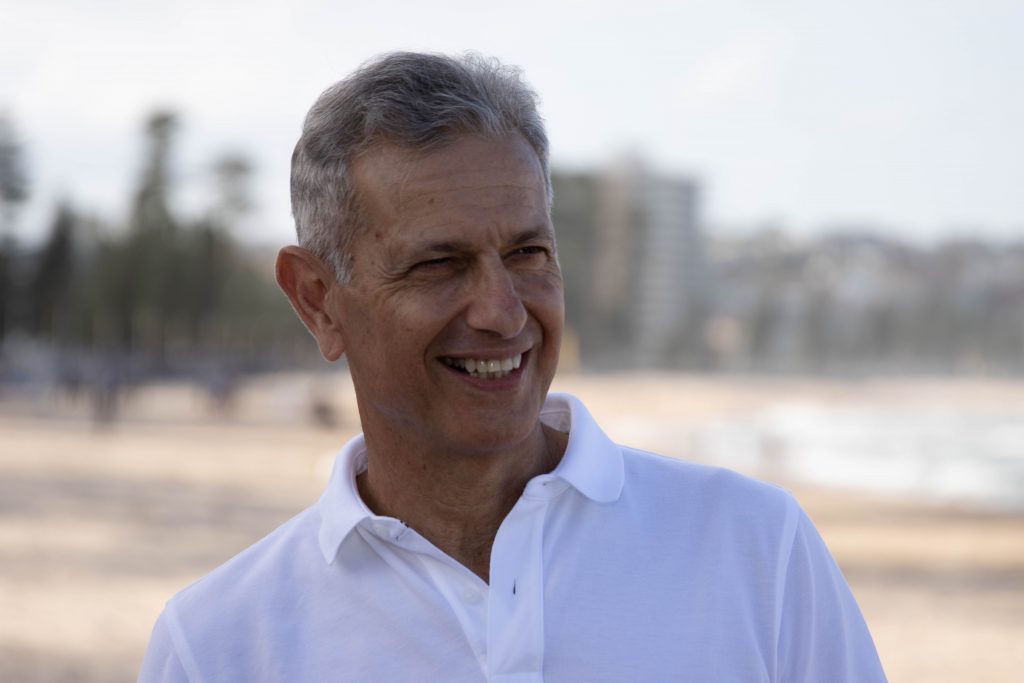
The impact of that shock cancer in the Economides clan changed everyone, James says. His son went from studying business to becoming a doctor, his other son went on to work in melanoma clinics with his medical science degree. No one should suffer the way Michael did, they reasoned. It is a deep pain which has had an indelible impact on all that they do more than a decade on.

James is sad that the annual Melanoma March cannot be held this year. But with the uncertainties of Covid and the risks to those who march who may already have compromised immune systems, they needed to find another way.
That’s why the team at Melanoma Institute Australia (MIA) is calling on Australians to buy a $30 digital footprint. Each footprint can be personalised with a message of support or hope, and shared to socials to spread the word.
It’s easy to see events like this, click ‘like’ on social media and do nothing about it. But James Economides will be sitting and watching that map of Australia, he is counting on seeing digital footprints cover the map of Australia to know his message has been heard and half a million in research and public campaign money is on its way to ensure history doesn’t repeat.

Alongside James and I at Manly Beach on this afternoon is Shannan Ponton, the ex Biggest Loser Trainer who recently appeared on SAS Celebrity. He’s a North Curl Curl resident and self-pronounced cancer campaign sl—avid supporter. He’s coming along to support the melanoma message because he’d be dead today, missing out on watching his three children grow up, had his wife not pushed him to get a skin check after a small, strange bit of dark skin appeared on the back of his thigh in 2010.
“There’s nothing I’m afraid of except cancer,” he says. “I thought I was invincible. I thought I had done everything right to be fit and healthy and I was almost untouchable. I was pig-headed. It was only because my wife pushed me to get this strange thing on my leg checked out that I am here today.” They had to cut quite a lot out and it needed some follow up treatments, “21 stitches” he explains as he pulls up his shorts to reveal the scar.
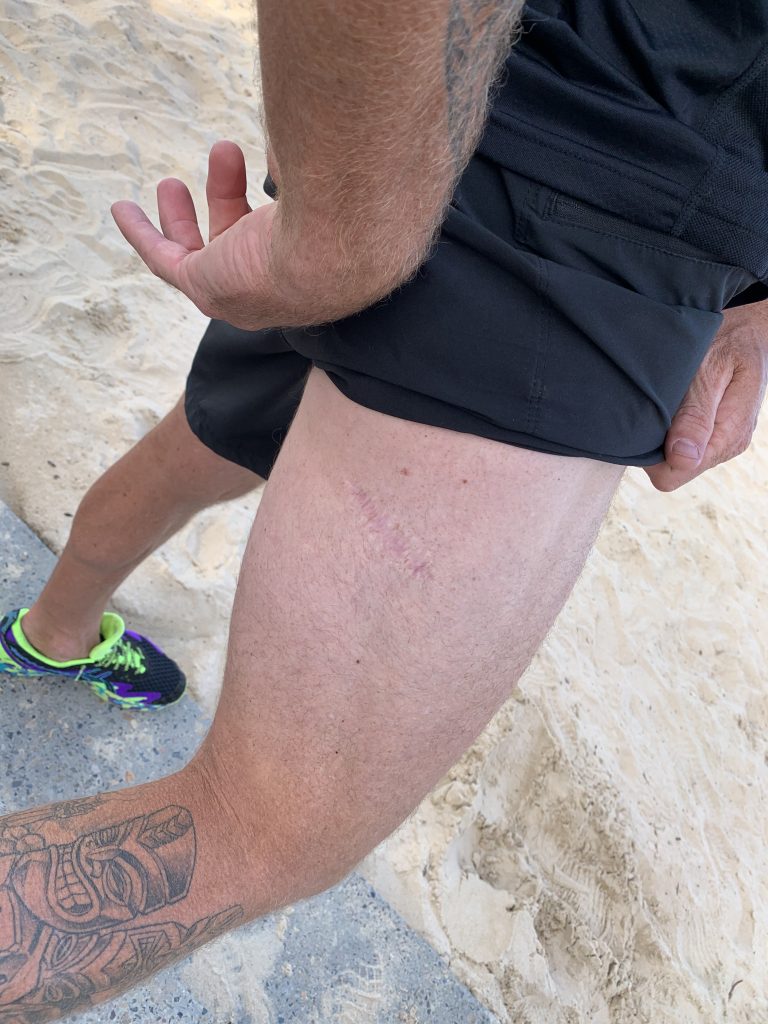
MIA CEO Matthew Browne said just as melanoma can impact anyone – regardless of gender, age, skin type or where they live – anyone can take part in this year’s innovative digital Melanoma March campaign.
“Melanoma is Australia’s national cancer, and no matter what part of this vast country we live in, we all have a responsibility to leave our footprint on melanoma and help save lives from this disease,” he said.
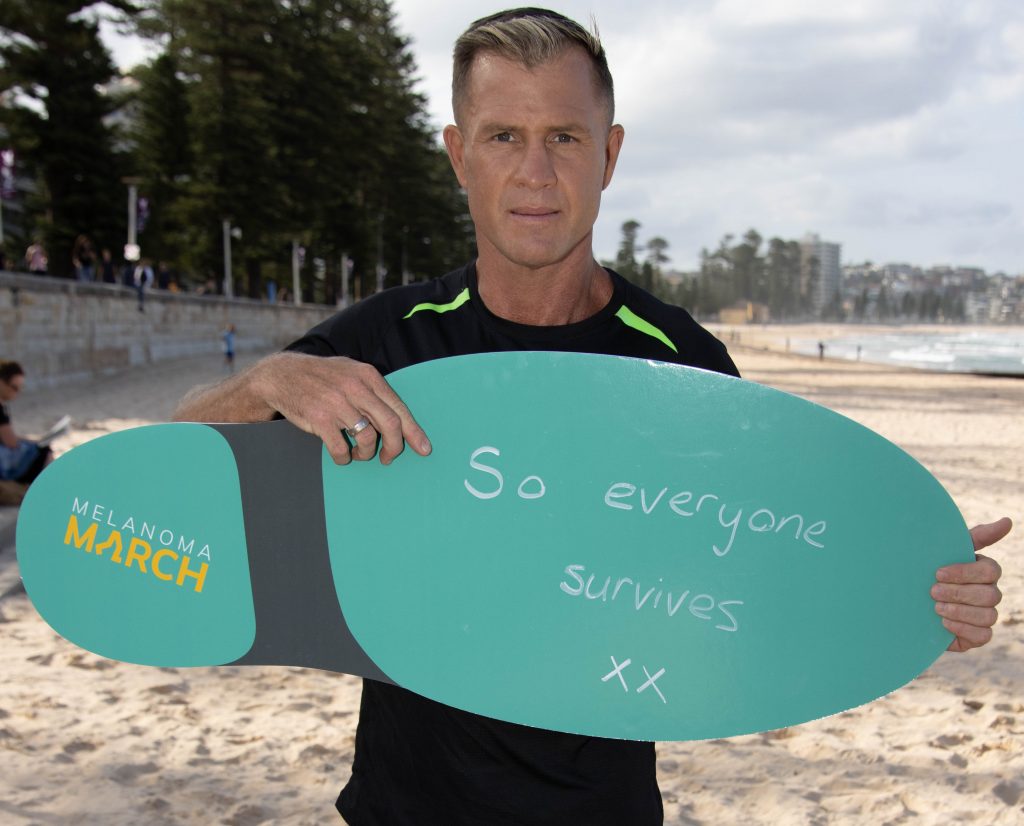
Australia has the highest melanoma rates in the world and is the most common cancer affecting 15 to 39 year old Australians.
Research advances over the last decade have tripled life expectancy for melanoma patients whose disease has spread to organs like the brain, liver and lungs. However, a large subset of patients don’t respond to these new breakthrough treatments.
“We are now at a critical point where ongoing research is needed to focus on patients who don’t respond to current treatments,” Mr Browne added.
Shannan Ponton is taking a particularly active role, having volunteered himself for genetic research since he has had other family members with melanomas. He says he’s even hosted a barbecue with his closest friends for the sole purpose of discussing how important it was to him that they all made a commitment to get checked from that day forward.
Two people who attended that barbecue have since had a melanoma discovered and treated, he said.
I gave the same commitment, and perhaps you can too.
For this year’s Melanoma March buy a digital footprint, personalise it and leave your footprint on melanoma, go to www.melanomamarch.org.au


